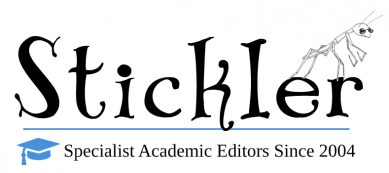First things first: What’s the difference between a resume (or résumé) and a CV (curriculum vitae)?
Both documents provide a summary of your work experience and skills. The CV is generally several pages of information on your work experience and academic background, including grants, presentations, and publications. The resume is a more concise one- or two-page summary, and might include sections titled “Objective” or “Career Summary.”
In the US, most employers request a resume, while the CV tends to be used in Europe, Asia, and Africa. However, for academia, medicine, and research-based jobs, Americans tend to use a CV.
The following tips will make you stand out from the crowd, whether you’re writing a CV or a resume.
- Include keywords from the job description. Although it’s more time-consuming, customizing your CV or resume for each job you’re applying for is vital. Many companies will scan your application for certain keywords, and if yours doesn’t have these, it won’t make it past the first cut.
- Research the company you’re applying to. When you see phrases and concepts repeated over and over on their website and materials, take note. Don’t copy and paste them into your resume, but do try to “mirror” them in your own writing. This demonstrates to prospective employers your attention to detail, your interest in the job, and your ability to fit in with their corporate culture.
- Don’t forget to include your name and contact information! Here at Stickler, we receive job inquiries just about daily, and you wouldn’t believe how many people get wrapped up in the content of the resume and forget the most basic information of all! This should be displayed clearly, at the top of the first page as a minimum—although we recommend adding your full name, phone number, and email address as a header on subsequent pages as well. After all, making it easy for the employer to contact you can only be a good thing!
- Keep it concise. There’s no hard and fast rule about length when it comes to resumes and CVs. However, we generally recommend sticking to two pages maximum wherever possible (although this guideline is certainly bendable, particularly for very technical jobs, which may require greater detail). HR representatives simply don’t have time to read every single page of every resume they receive, so it’s important to be succinct. One way to make your document very focused is to include only relevant work experience—where space is at a premium, you can probably omit the babysitting job you had when you were 13!
- But give detail where needed. Although it’s important to be concise, if certain aspects of your previous experience need explanation, it’s advisable to go into a bit more detail. For example, say you’ve won an award. People at your present job may know what that award was for, but if you’re applying to a position in a different field, it’s beneficial to explain why the award was important.
- Highlight quantifiable results and duties. While including your work responsibilities is a given, you should also try to include measurable information; for example, how many people you managed, how much you made in sales, or how much money you saved your previous company.
- Get the layout right. Most HR representatives and companies prefer a chronological order for resumes (with the most recent job first), rather than a functional format that emphasizes skills. This makes it easier to put a person into context and see the development of their career path. Also, recruiters know that functional resumes enable applicants to hide gaps in their work history or experience.
- Remember that looks matter. Pay attention to the at-a-glance format and appearance of your CV or resume. The recruiter will make their first impression of you in a matter of seconds, and if your document has walls of text, distracting fonts, or disorganized formatting, they might be put off straight away.
- Proofread your documents before sending them in. Everyone makes mistakes, but your resume or CV is not the place for this. Even if you’re not applying for a language-related job, prospective employers are looking for people who put care into their work. And in the flood of resumes received for any one position, you can bet that HR representatives and managers are looking for any excuse to whittle down the field to make selection easier.

